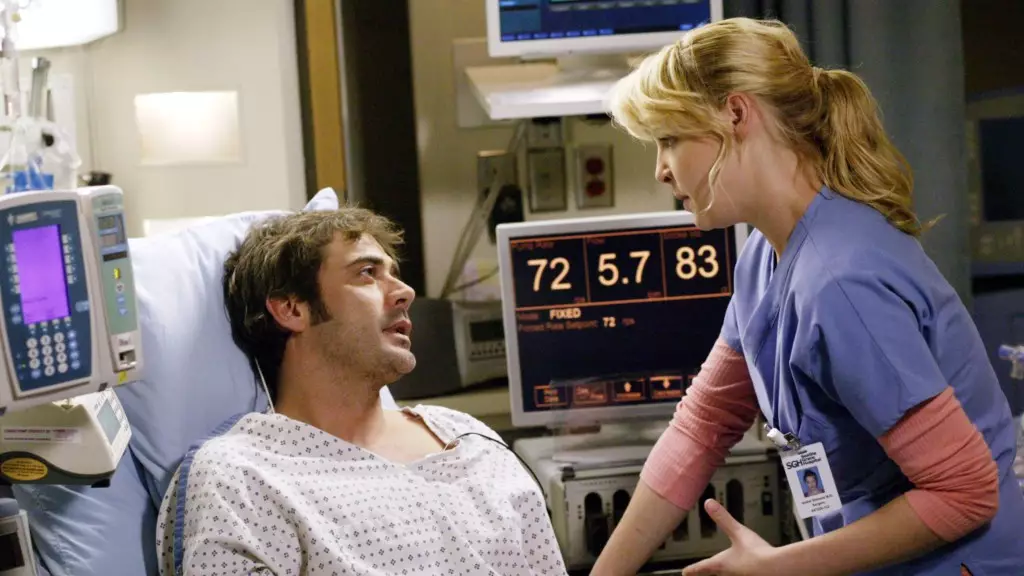For over two decades, Grey’s Anatomy has captivated millions of viewers with its blend of medical drama, personal chaos, and emotional storytelling. The series has cultivated a treasure trove of unforgettable moments that tug at the heartstrings and spark conversations. Yet, amidst the accolades and critical acclaim, certain scenes raise questions about the boundaries of personal experience and professional endeavors. Katherine Heigl’s candid remarks about her discomfort while watching select episodes with her children unveil a layer of complexity that lies beneath the surface of scripted drama.
Awkward Conversations Sparked by Iconic Scenes
Heigl’s candidness regarding the ghostly sex scene with Jeffrey Dean Morgan sheds light on the often-unexplored feelings of actors portraying intimate relationships on screen. In her interview with Entertainment Weekly, she expressed her embarrassment and reluctance to share her past with her children. This feeling isn’t unique; many actors face similar challenges when navigating personal and professional boundaries. The discomfort Heigl feels doesn’t just stem from the risqué content; it arises from the inherent vulnerability involved in baring one’s history on television, especially in intimate scenarios.
The episode in question, titled “In the Midnight Hour,” isn’t simply provocative for shock value. It has become emblematic of the show’s ability to blend life, death, and fantasy. When Heigl’s Izzie Stevens interacts with Morgan’s Denny Duquette, who appears posthumously, it blurs the line between reality and fiction. It is a poignant exploration of love transcending mortal boundaries, albeit one that is wrapped in layers of awkwardness for those involved.
Creative Choices That Inspire Reflection
Morgan’s insights regarding the oddity of the scene add another dimension to the discussion. He admitted to feeling uncertain about the effectiveness of their performances, suggesting that the very premise of communicating with a ghost could diverge from the intended narrative. The complexity of portraying grief and emotional connection in an unorthodox format reveals the risks involved in storytelling. Artistic expression in television is often a reflection of human experiences, but these experiences can sometimes lead to unusual and embarrassing moments for actors.
In Heigl’s view, the scene encapsulates a moment of supposed intimacy that she would rather not unpack, especially in front of her children. It highlights a universal truth: parental figures face the daunting task of contextualizing their lives in a manner that is both age-appropriate and respectful to their own experiences. Does revealing the labyrinth of one’s past—which includes playing a role on a series like Grey’s Anatomy—heal or hinder familial bonds?
Legacy and the Burden of Past Decisions
Ultimately, Heigl’s struggle to reconcile her professional peak with her personal life reveals the broader implications of celebrity culture. How do these actors navigate the delicate balance between their on-screen personas and their real-life identities? Grey’s Anatomy offers a fertile ground for examining these issues, allowing audiences to engage not only with the characters but also with the ethical and emotional implications behind every line and scene.
In our modern media landscape, where emotional authenticity is celebrated, Heigl’s candidness about embarrassment can foster introspection. It invites viewers to reflect on how they internalize the lives of public figures, particularly those who bring their vulnerabilities to the screen, exposing the complex interplay between art and personal identity. The deliberations arise: is it worth sharing these past experiences, and how does that shape our understanding of those we admire?

Leave a Reply